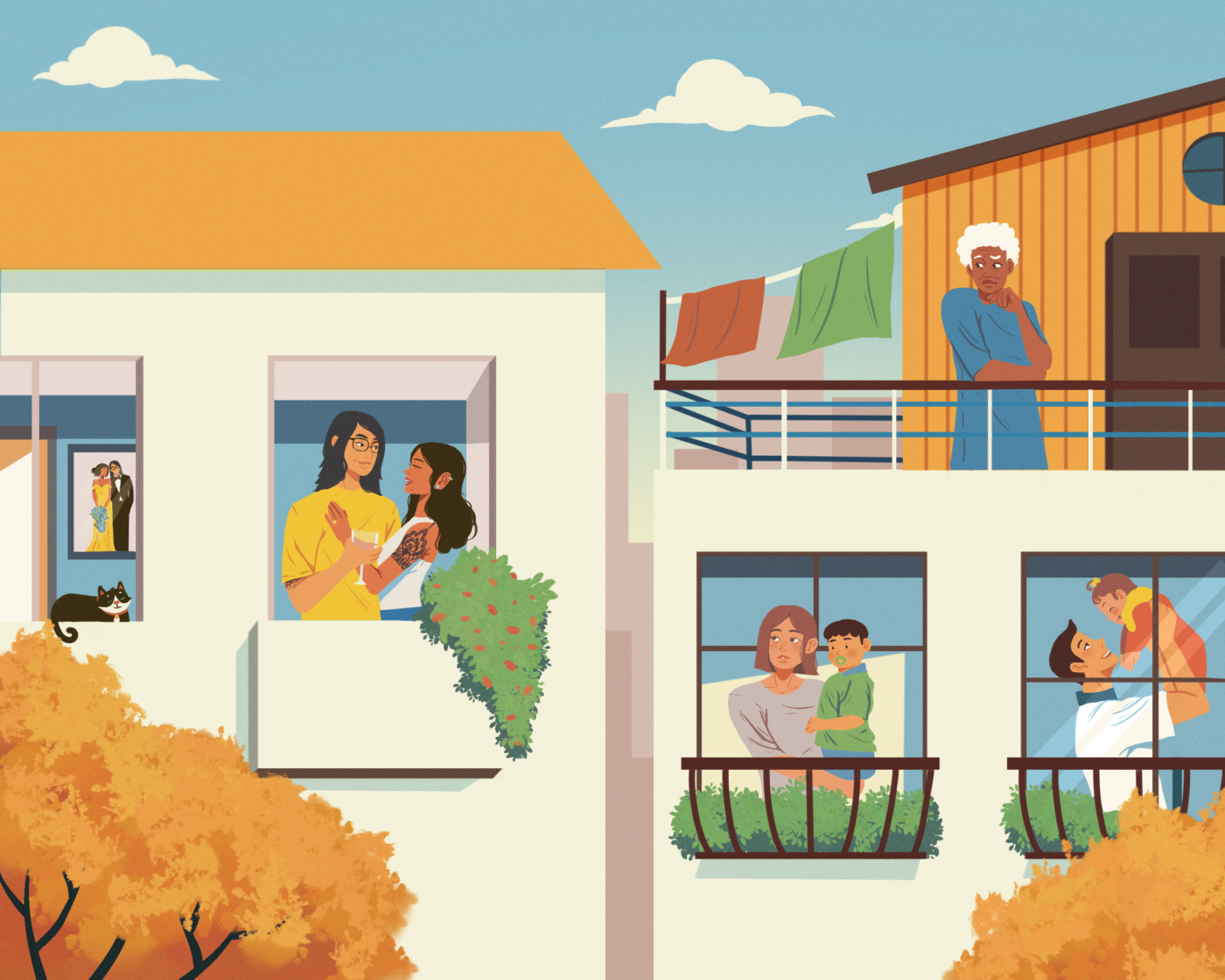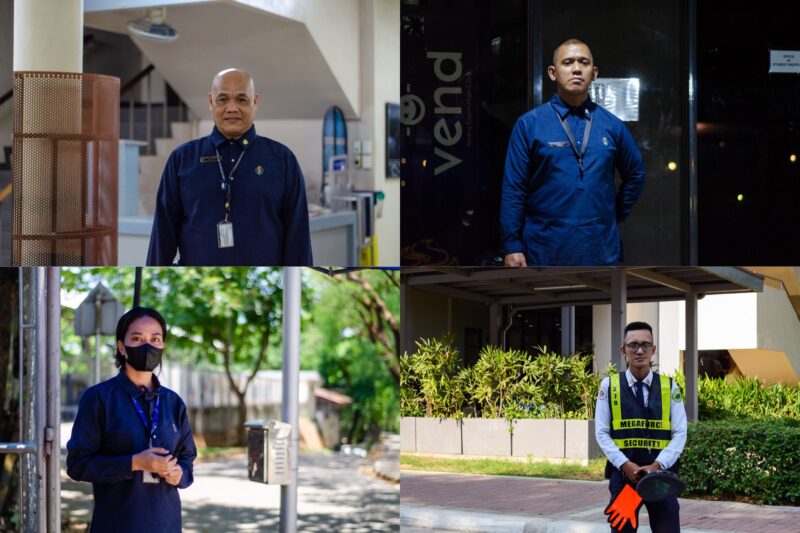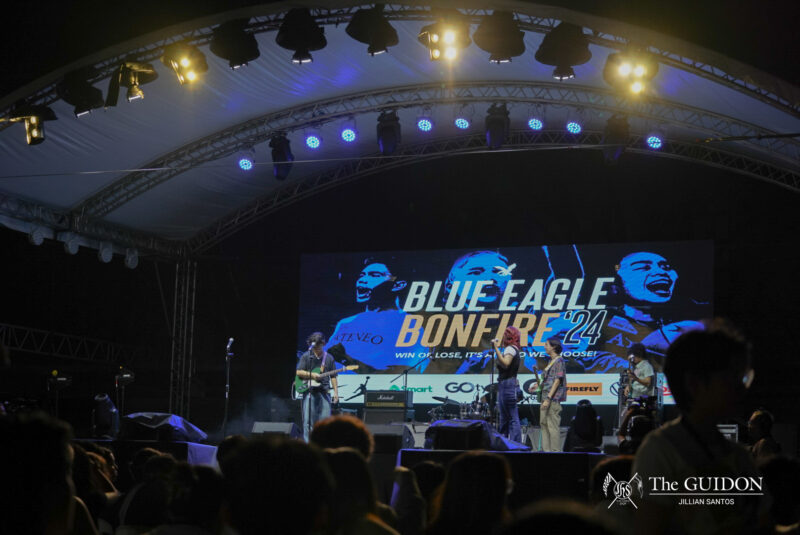Amid growing economic insecurity, younger generations have started exploring a Double Income, No Kids set-up—a family model that can be perceived as deviant from Filipino culture, especially for couples who veer even further from heteronormativity.
THE PICTURE-PERFECT family always features a mother and a father, next to their two children who are always conveniently a boy and a girl. This composition is the ideal family setup that is highly valued in Philippine society.
Deviating from the big, extended families that are encouraged in the relational and interdependent Filipino culture, the term Double or Dual Income, No Kids (D.I.N.K.) refers to couples who choose not to have children. Some couples now lean toward this family structure to free themselves from the financial burden associated with having children.
Filipino values are also largely influenced by religious beliefs, leading to social constructs that are imposed on family-building. Under these constructs, couples are called to “go and procreate.” As such, stories of D.I.N.K. couples are often left untold.
A home for two
D.I.N.K. couple Roma Regala and Gian Cruz have been together since 2018. On a regular day, Roma stays at home and works online, while Gian goes to work at his corporate job. After convening in the comfort of their home, Gian and Roma spend time together through their typical day-ender: sharing dinner, watching TV, and playing with their dogs. Engaged since 2020, the couple had become comfortable with this kind of life.
Although they do not fit the usual family structure, Roma and Gian are not concerned with how they are perceived. Before Gian’s transition, they started as a lesbian couple which was—and is—not considered the norm.
Early on in their relationship, Roma and Gian established that they do not plan to have kids. For Roma, the physical demands and unpredictable schedule of her job as a production designer render childbearing and childrearing only an added responsibility. “Inupo ko siya and made him understand why ayaw ko. Hindi lang siya because of [the] financial weight. […] Ayaw ko talaga because of [my] lifestyle,” Roma recalls.
(I sat [Gian] down and made him understand why I don’t want [kids]. It’s not just because of [the] financial weight. […] I don’t want kids because of [my] lifestyle.)
With the decision to remain childless, Gian also voiced his concerns about the government’s lack of a proper healthcare system, which makes it not feasible and logical to build a family in the Philippines. Aside from those concerns, the lifestyle they now enjoy would be entirely different if a child were part of the picture.
Besides drastic lifestyle changes, couples are adopting the D.I.N.K. setup for various reasons. Institute of Philippine Culture Research Associate Skilty Labastilla, MS attributes the increasing number of D.I.N.K. couples to the current economic conditions in the country. Filipinos today are concerned with inflation and the high cost of living, among other things.
“With the increasing precarity in today’s world, even the combined income of both parents would not be able to support a family,” Labastilla says.
Following this, some couples are deciding to have less or even no children for better financial security. Meanwhile, some couples delay marriage to save up and enjoy life with just the two of them.
Furthermore, young couples now prefer the option to remain childless due to the increasing value of “agency and individual freedom” in the contemporary world, according to Labastilla.
No kids, no problem?
For LGBTQ+ couples like Roma and Gian, the D.I.N.K. setup happens to be the default. Although LGBTQ+ couples face a different kind of societal expectation of whether they want kids or not, Roma and Gian have never been affected by it.
“We don’t face any pressure to biologically reproduce. Never kami hiningan ng apo ng parents namin (Our parents never asked us for grandchildren),” Roma shares. “Our [families] never insisted, and we are happy with our healthy relationship,” Gian adds.
Nonetheless, a general apprehension with the D.I.N.K. setup is the issue of who becomes the couple’s caretaker once they grow old. Since they mainly rely on each other, Gian’s “more conservative” grandmother worries about who will look after them when they are older.
Looking after one’s elders is a tradition prescribed as one’s unspoken duty to their family, remaining as a hallmark of respect as a Filipino core value. However, this practice does not appear to worry the couple. “Even if we do have kids, it’s not their obligation to take care of us when we get older. It’s our obligation to be healthy so that we do not need assistance at an older age. With dual income, we hope to sustain ourselves until the future,” Roma shares.
The greater challenges as a D.I.N.K. couple are rooted more in the limitations they face as members of the LGBTQ+ community. Since the law does not validate the couple’s union, hospitals cannot legally recognize them as each other’s family in the case of a medical emergency. Additionally, if Roma were to become a mother, the law would not consider Gian as the children’s father.
With the absence of legally recognized partners, members of the LGBTQIA+ cannot be fully supported. “We hope for a home for the aged for transmen and other LGBTQ+ in the future, but it needs to start[with] the SOGIE [Equality] Bill,” Gian asserts.
Both agree that noticeable change can be made with the passing of Senate Bill No. 689, or the Sexual Orientation and Gender Identity Expression Equality Bill. The couple hopes that the passing of the SOGIE Equality Bill could make strides towards the recognition of same-sex unions in Philippine law.
“Hopefully, discrimination towards LGBT couples [would lessen]. Hopefully in our lifetime, we can experience the SOGIE [Equality] Bill and [the government can] recognize our union,” Roma shares.
Finding families
As the most basic institution of society, encountering one’s own family since birth is the first step into socialization. While there is a biological inception of starting a family, Labastilla also argues that family is a socially defined concept. Culturally speaking, Labastilla shares that nuclear family structures are a more Western concept, whereas Asians generally value clannish and extended family structures.
Today, the evolving concept of family can be attributed to the changing social landscape. D.I.N.K. families, same-sex couples, and single-parent families are manifestations of society’s growing awareness.
To Roma and Gian, family is not just defined by a connection of blood. “Family is where you feel at home and how you feel safe, no matter who it’s with,” Roma shares.
“Family is [about] the fact that you feel comfortable [with] each other and that you’re willing to fight for them,” Gian adds.
Given these evolving definitions of family, Labastilla mentions that deviance from traditional structures is occurring, but there is nothing subversive about it.
These newer renditions of what a family can be reflects the complexity of society’s diversity, and at the same time, individuality. Above all, autonomy is embedded in this discourse. On a systemic level, however, there has to be an equal recognition of nontraditional family structures.
Ultimately, family is deeply tied to individuals’ contexts and is indeed socially constructed. In pursuit of a truly inclusive society, these evolving contexts call for a redefinition of what a family is, however one chooses to see it.







